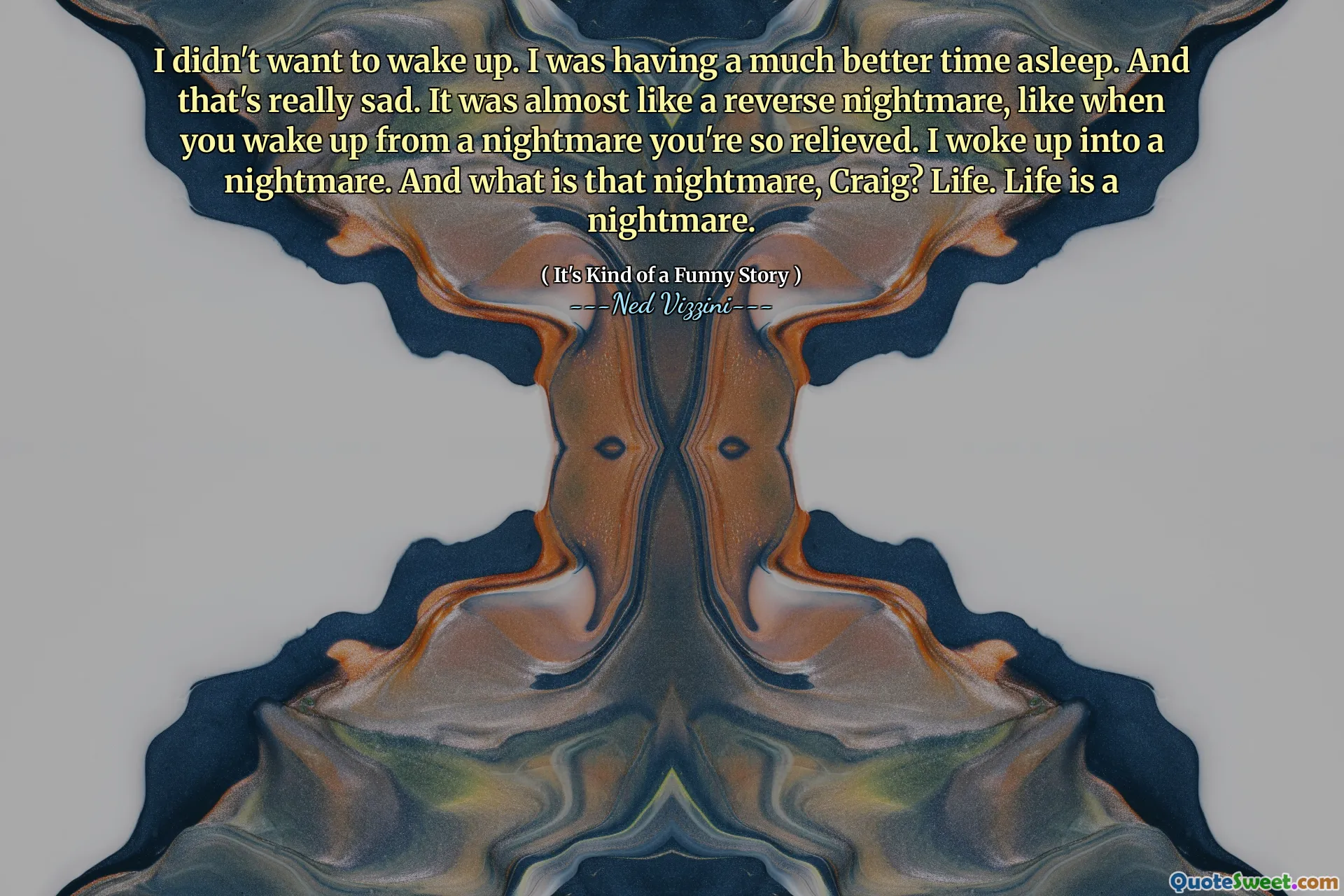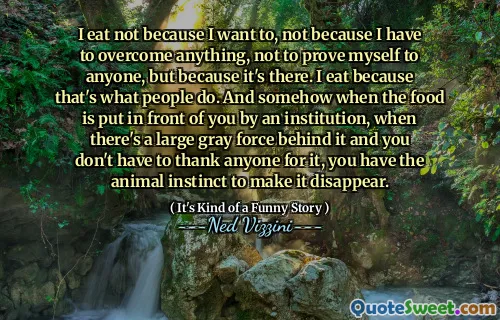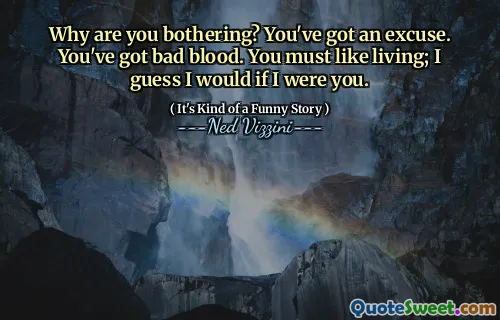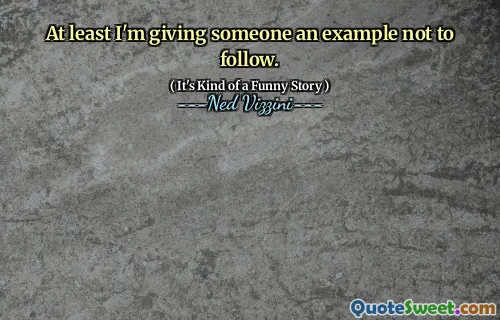
I didn't want to wake up. I was having a much better time asleep. And that's really sad. It was almost like a reverse nightmare, like when you wake up from a nightmare you're so relieved. I woke up into a nightmare. And what is that nightmare, Craig? Life. Life is a nightmare.
The quote captures a profound and somber reflection on the nature of waking life and the often overwhelming burdens it entails. The speaker reveals a preference for sleep, a state where they temporarily escape the hardships and anxieties of reality, suggesting that even the act of waking up can be a distressing transition. The metaphor of a reverse nightmare highlights the unsettling contrast between the relief found in sleep and the troubling realization of existence when awake. It underscores a perceived futility or despair in life, framing it as a continuous source of suffering or difficulty. This sentiment resonates with a universal experience—many individuals face moments where the burdens of life seem almost unbearable, evoking feelings of disillusionment or fatigue. The analogy of life itself as a nightmare emphasizes the depth of this emotional struggle, as if the waking world is filled with chaos, pain, or meaninglessness. Such introspection prompts readers to consider their own perceptions of reality and the hidden toll that persistent hardship can take on mental health. It also invites reflection on the importance of finding solace, purpose, or peace amid life's challenges. Recognizing that these feelings are common can foster empathy and understanding, reminding us that even in our darkest moments, seeking support or hope can be a vital part of navigating this ‘nightmare’ called life.











